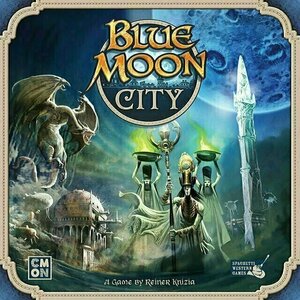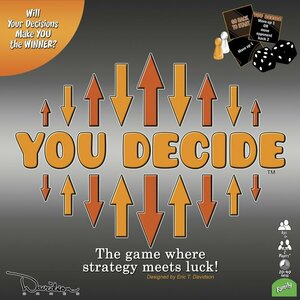
Crete Marco Polo Spiral Guide
Book
For advice you can trust, look no further than Marco Polo. The Crete Marco Polo Spiral Guide is a...

Dubai Marco Polo Spiral Guide
Book
For advice you can trust, look no further than Marco Polo. The Dubai Marco Polo Spiral Guide is a...

Gran Canaria Marco Polo Spiral Guide
Book
For advice you can trust, look no further than Marco Polo. The Gran Canaria Marco Polo Spiral Guide...

Mallorca Marco Polo Spiral Guide
Book
For advice you can trust, look no further than Marco Polo. The Mallorca Marco Polo Spiral Guide is a...

Sicily Marco Polo Spiral Guide
Book
For advice you can trust, look no further than Marco Polo. The Sicily Marco Polo Spiral Guide is a...

Master Techniques in Orthopaedic Surgery: Soft Tissue Surgery
Book
Part of the highly regarded Master Techniques in Orthopaedic Surgery series, Soft Tissue Surgery,...

Blue Moon City
Tabletop Game
Blue Moon City - the board game - picks up where the two-player game, (Blue Moon), ended: the...
Purple Phoenix Games (2266 KP) rated You Decide in Tabletop Games
Nov 12, 2020
As mentioned in my intro, You Decide is a roll and move game for two players. More players can be added to the game with more copies of the game. In the game players are attempting to be the first to move all six of their pawns from the STARTing line to the FINISH line.
DISCLAIMER: We were provided a copy of this game for the purposes of this review. These are retail copy components, and therefore final components. Also, it is not my intention to detail every rule in the game, but give a feel for the flow of the game and how it plays. You are invited to download the rulebook, purchase the game from the publisher, or through any retailers stocking it soon. -T
To setup, lay out the board between the two players and each player will place their pawns on the six circles on the START area. Roll off to see who will start the game and you are ready to begin!
You Decide turns are simple: roll both dice and decide which pawn to move. Move it and pass the turn to the opponent. When a player rolls the 2d6 it creates two numbers. For this review we will just use the example of a 4 and a 6. With this roll the player will decide to move the pawn in the 4 spot a total of six spaces, or the pawn in the 6 spot a total of four spaces. Easy, right?
Though movement is easy to determine, deciding which to activate is the challenge, though not severe. Upon many spaces on the board are printed instructions for the player to obey when a pawn lands on it. These could include returning the pawn to the START space, or moving forward a number of spaces but also allowing the opponent to move forward, or simply staying put and moving an opponent’s pawn.
When a player lands their pawn at the FINISH area, that number is no longer able to be used in subsequent rolls, and once several dice are at the FINISH area, each die rolls becomes more and more dire as players are on a mad dash to finish first. Play continues in this fashion until a winner has reached the FINISH area with all their pawns.
Components. This is a board, 12 pawns, and 2d6. The board is fine, with legible print and art that is present but stays out of the way. The pawns are typical plastic pawns but in excellent colors: orange and black. The 2d6 are fine as well. Black plastic with white pips. For this type of game, the components are completely functional. Nothing super impressive nor too egregious.
The gameplay is exactly what you want for a family level game. It is extremely light, offers choices that are meaningful without burning little brains, and has just the right amount of take-that to wean newer gamers off the Candy Land Express.
For me, it fills an interesting niche in my collection that I really didn’t know I had: a simple game for my family that even my 4-year-old can play and do well with, as long as we read the choices to him. Now, You Decide is very light and could be considered a gateway filler, but also as an easygoing family stepping stone game to get little ones rolling dice and making choices. Candy Land does NOT allow you to do that. So if you have young ones about to embark on their board game journey, I suggest you grab a copy of You Decide instead of those beginner games at Wal-Mart or Target. That is, unless You Decide gets picked up and sold at those locations.

Dresden Marco Polo Spiral Guide
Book
For advice you can trust, look no further than Marco Polo. The Dresden Marco Polo Spiral Guide is a...

Florida Marco Polo Handbook
Book
For advice you can trust, look no further than Marco Polo. The Florida Marco Polo Handbook offers...
